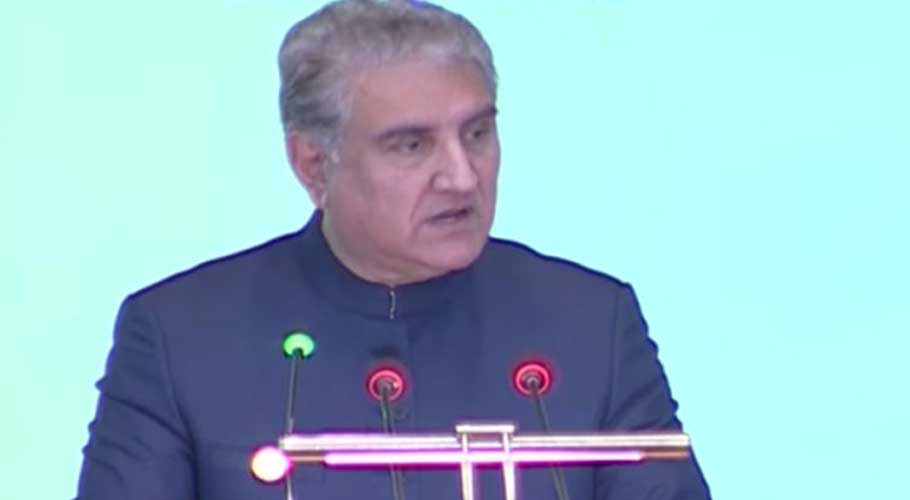ISLAMABAD: Pakistan on Sunday proposed a six-point strategy for addressing Afghanistan’s humanitarian crisis, food security and economic revival besides the institutional capacity building to counter-terrorism.
Foreign Minister Shah Mahmood Qureshi was the first to address an extraordinary session of the Organisation of Islamic Cooperation’s (OIC) Council of Foreign Ministers to discuss the situation in neighbouring Afghanistan, currently underway at the Parliament House in Islamabad.
“Pakistan is also gratified by the trust reposed in us by the OIC. Your presence here on short notice affirms the importance the world and OIC hold for the people of Afghanistan. The significance of this gathering goes beyond mere symbolism. It is a matter of survival for them,” he said in his opening remarks.
Detailing the plight of Afghan people, Qureshi said: “Over half their population — 22.8 million people — face food shortage. Millions of Afghan children are at risk of dying from malnutrition. This situation has been brought about by a multiplicity of factors such as years of conflict, poor governance and excessive dependence on foreign aid.”
Qureshi said that as per the UN, the Afghanistan situation “could become the biggest humanitarian crisis in the world”, adding that those with “direct knowledge” have been giving “dire warnings” in this regard.
“It is unfortunate that the hardship and suffering of the Afghans have not eased,” he said as he urged the Islamic world to stand with the people of Afghanistan just as it backed the right of “self-determination of the Palestinians and the Kashmiris”.
“This is the moment to extend a collective helping hand. This is not the time to withhold support,” he added. Qureshi proposed a six-point framework for the OIC to lead which included creating a vehicle with the OIC to channel “immediate and sustained humanitarian and financial support to the Afghan government”.
Qureshi also called for enhanced engagement with Afghanistan to bring in political and social inclusivity besides ensuring respect for human rights particularly women’s rights. The foreign minister also called for increased investments in the education and vocational sectors of Afghanistan, either bilaterally or through the OIC platform.
He also proposed the establishment of an expert group of the OIC and UN officials to revive the banking sector in Afghanistan that collapsed after the Taliban took over Kabul. He also called for enhancing food security in the war-torn country, investing in building the capacity of Afghan institutions in countering terrorism and combating illicit trade in narcotics, and engage with Afghan authorities to help advance the expectations of the international community.
“The consequences of a humanitarian crisis and an economic collapse will be horrendous and we must not allow this to happen,” he said, adding that Pakistan was doing all it can to help its Afghani brethren.
Qureshi said that the OIC session must usher in “visible change” and show the people of the war-torn country that it is united in helping them stabilise their economy and country. Concluding his speech, the foreign minister called on the countries to seize this “historic opportunity” to turn the tide in Afghanistan.
Envoys from 57 Islamic nations as well as observer delegations are participating in today’s session. Besides OIC Members and Observers, the UN system, International Financial Institutions (IFIs), international and regional organizations, and non-OIC members including the P-5, EU, and major countries like Germany and Japan, are among the other invitees.



































